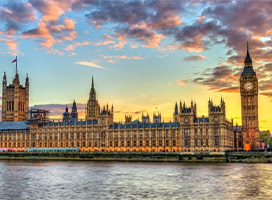WOBO supports protection of our environment.

More than two years after it was first introduced, the UK Government’s Environment Bill has received Royal Assent, with green groups calling the moment a “milestone” but continuing to press for stronger provisions.
Royal Assent was granted late on Tuesday (9 November) to the Bill, which was introduced in a bid to support the Government’s overarching vision for leaving nature in a better state for the next generation, and to confirm the UK’s approach to environmental governance post-Brexit.
Key provisions in the Bill include the creation of the new post-Brexit watchdog, the Office for Environmental Protection; a new “comply or explain” mandate on deforestation for UK businesses importing forest-risk commodities and forthcoming bans on selected single-use plastic items including cutlery and polystyrene cups.
However, what is not included is, in many cases, as interesting and important as what is detailed.MPs voted last month to block a number of amendments voted for by the House of Lords, including greater provisions for ancient woodland protection in planning frameworks; restrictions on ministerial powers to weaken habitat-related regulations; a legal duty on water companies to reduce raw sewage discharges into rivers and moves to strengthen the independence of the new watchdog, the Office for Environmental Protection (OEP).
The Government has since changed its stance on the wastewater issue, following reports of raw sewage being pumped into marine habitats across the UK. The Lords’ amendment said wastewater processors should “take all reasonable steps” to eliminate sewage discharges from storm overflows. Now, the Bill states that companies must deliver a “progressive reduction” in sewage discharges by number, volume and adverse impacts on people and nature. It is understood that the UK, at present, is dealing with a shortage of the chemicals needed to treat sewage.
Green groups have urged the Government to see the passing of the Bill as a starting point rather than an end destination.
| READ THE FULL ARTICLE |
